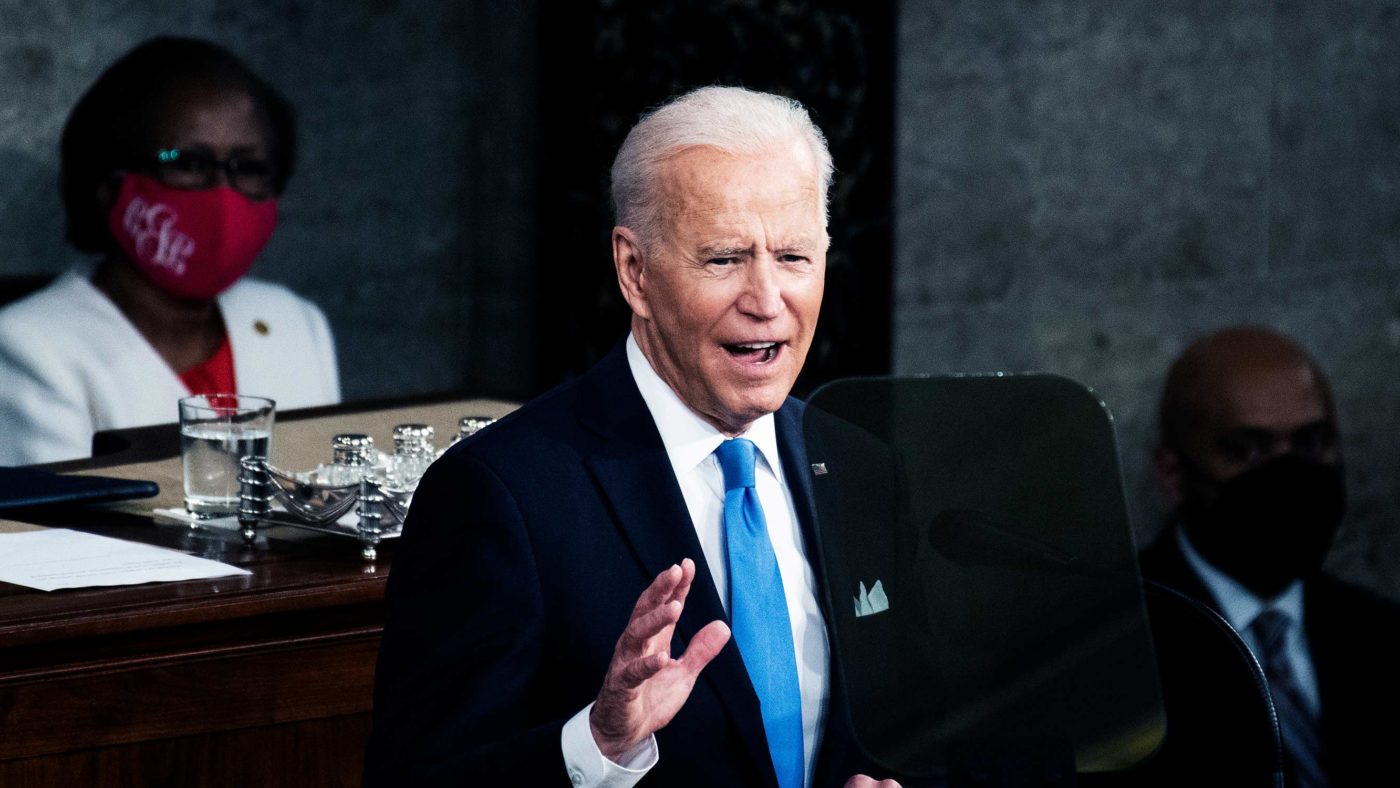Earlier this week President Biden made the bold declaration to Congress that “trickle-down economics has never worked” and used it to justify what might well be the biggest government spending spree in history. Not surprisingly, Sir Keir Starmer takes a similar view. His version is that “The free market economic model has failed. Trickle down didn’t happen.”
The fallacy lies in supposing that people seriously advocate trickle-down theory, or that they use it to justify tax cuts or to resist tax increases. I would be hard put to name any serious economist who advocates trickle-down theory. Claiming that they do is what’s known in logic as “the straw man”, setting up a fictitious opponent who is as easy to knock down as a dummy figure made of straw. Some people, if they cannot defeat a real opponent’s arguments, construct a straw one and attribute to it arguments that are easier to refute.
It’s a fallacy with a long history. In 1898, American politician William Jennings Bryan in his ‘Cross of Gold’ speech said, “there are those who believe that if you just legislate to make the well-to-do prosperous, that their prosperity will leak through on those below”. The comedian Will Rodgers later referred to this as “a trickle-down theory”, and the term has stuck.
The problem with the theory is clear as day. As the economist Thomas Sowell puts it: “Why would anyone advocate that we ‘give’ something to A in hopes that it would trickle down to B? Why in the world would any sane person not give it to B and cut out the middleman?” Precisely. No sane person would, which is why there is no “trickle-down” theory in any of the vast literature of economic theory.
The second fallacy stalking in the long grasses of President Biden’s speech is the Zero Sum fallacy, the one that supposes wealth to be in fixed supply, so that in order to make the poor better off, you have to take it from the rich. In the real world the poor become richer when growth takes place and wealth is created. Since Britain’s Industrial Revolution poorer people have seen staggering gains in their standard of living, not by having wealth taken from others, but by having wealth created through specialization, increased productivity, trade and exchange.
The key to wealth creation is investment. Governments often talk as if spending creates jobs. When their citizens, or governments themselves spend money, they say, jobs are created. They seem to think that if people are given money, their spending will create jobs for the people who deliver items such as food, clothes, entertainment or services. In fact the money they are given is diverted from the other uses to which it might have been put, and jobs in those other sectors are put at risk.
Investment, rather than spending, creates the jobs. It might be investment made in the hope of attracting future spending, but it is the investment that enables the companies to be started up, the factories to be built or leased, the raw materials purchased and the labour force taken on. The hope by investors is that future spending will bring them a return on their investment, but it is that investment rather than the anticipated future spending that creates the jobs and the growth.
The one lesson that economists learn is that incentives matter. Those who deny this are not economists. People respond to incentives and change their economic habits accordingly. Taxes change behaviour because their rise and fall constitute incentives that lead people to do something else. If investment is made less worthwhile, people will tend to do less of it. If we want to create the growth and wealth that raise living standards, we should make investment more worthwhile.
Tax increases do not create economic booms, but tax cuts, skillfully directed, can do so. Tax cutting by Presidents Kennedy and Reagan did that, as did tax cuts by Margaret Thatcher in the UK, as did those in the USA proposed by Paul Ryan and implemented under President Trump. President Biden and Sir Keir Starmer can beat the populist drum of soaking the rich, and justify it by opposing the alleged economics of trickle-down, but the reality is that there are no advocates of trickle-down. There are voices urging them to make investment more worthwhile, to make it easier to start new businesses and to expand production by existing ones, but these do not seem to be the voices they want to hear. It will end in tears; it always does.
Click here to subscribe to our daily briefing – the best pieces from CapX and across the web.
CapX depends on the generosity of its readers. If you value what we do, please consider making a donation.


